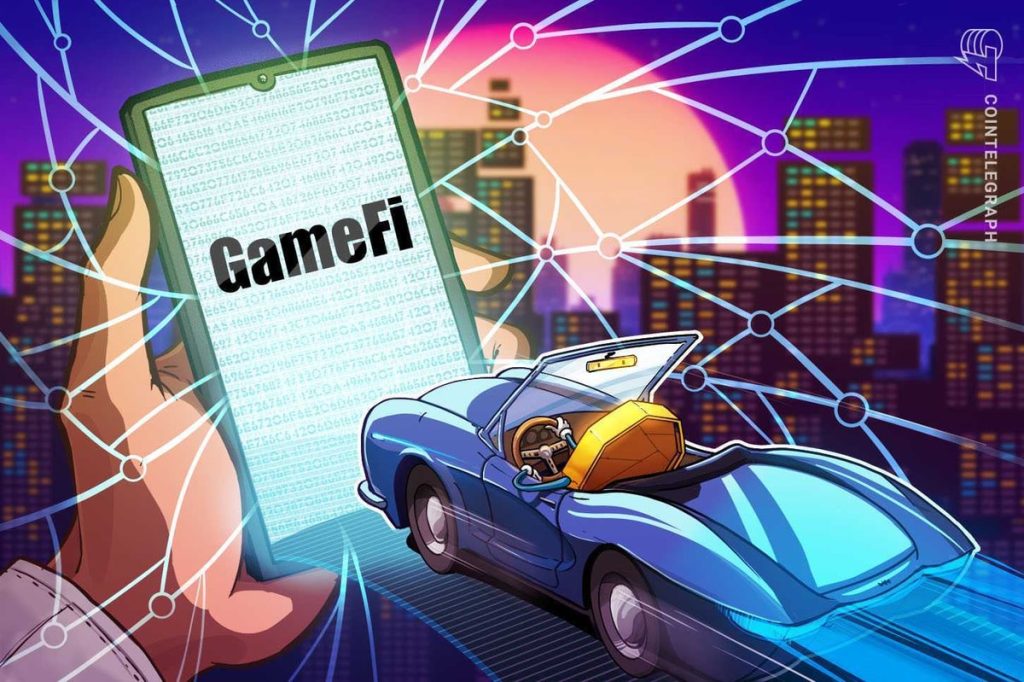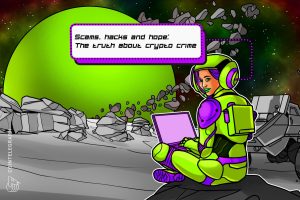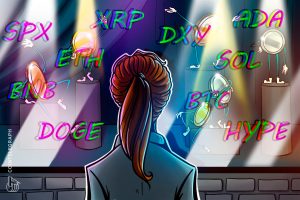Minecraft, GTA may yet change their tune on blockchain: GameFi execs

While several mainstream game studios have taken a noticeable step back integrating blockchain tech, three blockchain gaming executives say it’s only a matter of time before they change their tune.
In July last year, Minecraft developer Mojang Studios announced a ban on NFTs and blockchain technology.
By November, Rockstar Games updated its website to stipulate that fan-operated servers for Grand Theft Auto V can no longer utilize crypto assets, specifically nonfungible tokens (NFTs).
Rip NFT worlds? pic.twitter.com/5bEy5oqtjm
— DeeZe (@DeeZe) July 20, 2022
Walter Lee, gaming growth lead at BNB Chain, argues, however, the ban is more related to NFT activities than general blockchain tech and thinks that once “more regulation is in place” to guarantee player safety, mainstream studios will warm up to the technology.
“There is still a lack of education and regulation around Web3, therefore, some users and companies are still skeptical about the benefits and scams that can often be associated with it,” he said.
Mojang Studios pointed to rug pulls surrounding certain third-party NFT integrations, along with NFT wash trading and issues around digital ownership, as reasons for the ban.
Lee believes player demand will ultimately tip the scale on blockchain tech in mainstream games.
That being said, somegaming enthusiasts have a love-hate relationship with crypto, particularly when NFTs are involved.
French gaming giant Ubisoft Entertainment was forced last year to backpedal on plans to integrate NFTs into its games after player backlash.
An October survey from blockchain entertainment provider Coda Labs found that traditional gamers weren’t fans of cryptocurrencies or NFTs in general, though they didn’t seem to mind NFTs used in gaming as much.
“If there becomes an increased demand from players for blockchain integrations, they will likely revisit their policies,” Lee argued.
Grant Haseley, the executive director at mobile and Web3 game development company Wagyu Games, told Cointelegraph that one success story is all that is needed to spark mainstream adoption:
“AAA studios will change their mind once they start yielding true market share to Web3 games. It’s just going to take one Web3 game to explode for the others to take flight.”
According to Haseley, mainstream hesitancy around adoption is out of fear it will undercut the current business model of “the consumer strictly paying for entertainment.”
“They have a great thing going right now, the mobile gaming market, for example has breached $100 billion and is trending upward,” Haseley said, adding:
“If you can make a game on the fly and still maintain profitability without changing your model, why would you even consider something radical that could have lasting effects on your consumer base?”
Justin Hulog, chief studio officer at Immutable Games Studio, shared a similar perspective, explaining that because NFTs and crypto fundamentally transfer ownership of digital assets from companies to players, it’s unappealing for mainstream adoption.
Related: Blockchain tech still far from hitting the esport big leagues, says investor
“GTA V became the most profitable entertainment product of all time, and it’s no secret that quite a significant portion of these profits result from microtransactions that contain in-game currency,” he said.
“Microsoft also introduced microtransactions in Minecraft some time ago; it’s understandable that both companies would want to retain control over their in-game economies for financial reasons,” he added.
According to a 2020 report from market research firm Junpier Research, loot boxes and other microtransaction related features will net gaming companies $20 billion by 2025.
“If anything, this can even be interpreted as both companies acknowledging that NFTs and crypto are real-world assets with value attached to them that could potentially threaten their business model,” Hulog said.
While he does think it is “certainly a possibility” that mainstream studios will embrace blockchain tech, he thinks they will “likely start with something like adding support for cryptocurrencies as a payment method for their games and services.”












